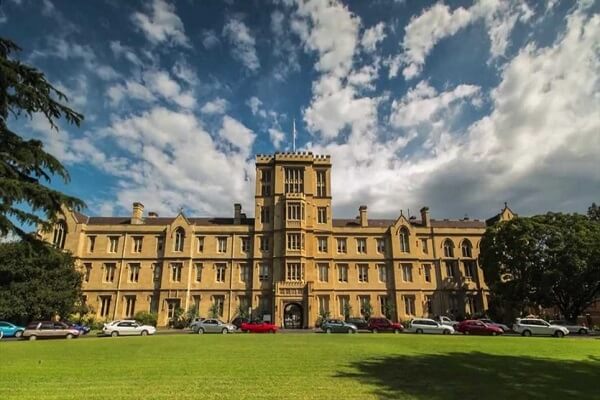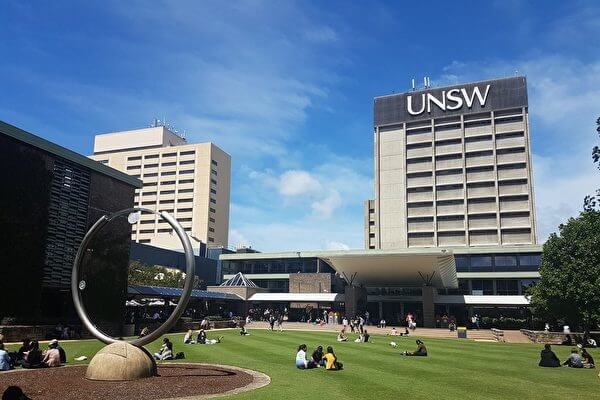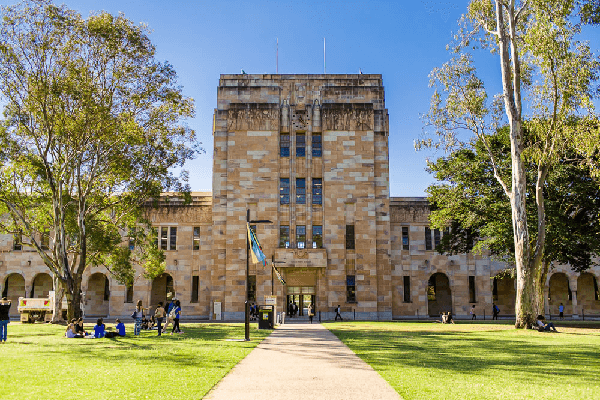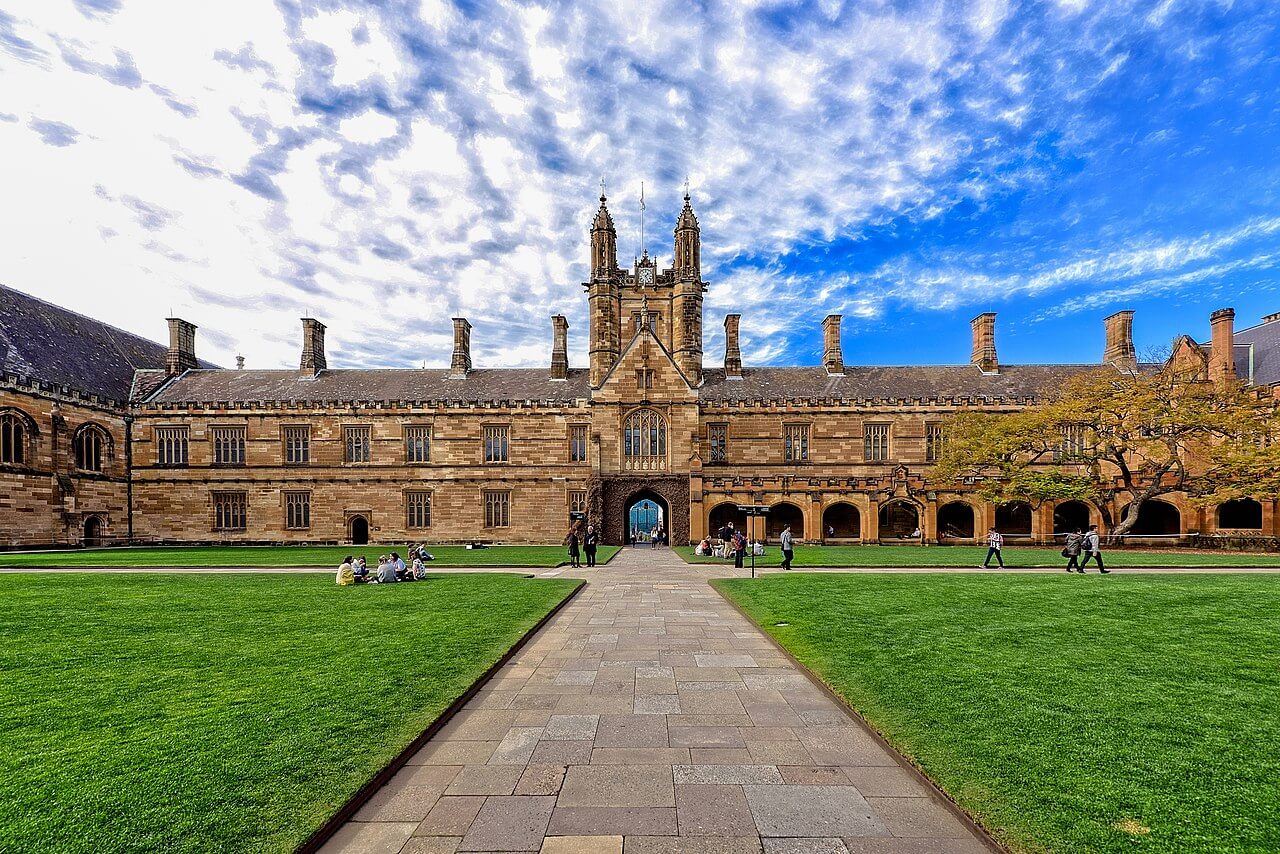
Australia offers a range of options if you want to further your education, undertake a world class degree or quickly track your career. Australia is hard to beat in terms of standard of living, academic excellence and support for international students, whether you choose to undertake an MBA, engineering degree, humanities or English language course
The standard of life in Australia ranks as the best in the world, behind only Norway. Australia is a paradise for those seeking to study abroad, with advanced infrastructure, world-leading healthcare facilities, a dynamic range of public transport, multiple student services, and a relatively affordable cost of living.
In terms of quality of life, job prospects, cost of living and student culture, Australia’s state capital cities, including Melbourne, Sydney, Canberra, Adelaide and Brisbane, rank among the world’s 30 best cities for students.
Australia’s climate varies greatly throughout the eight states and territories; there are four seasons across most of the country and a wet and dry season in the tropical north.
Australia’s seasons are at opposite times to those in the northern hemisphere. December to February is summer; March to May is autumn; June to August is winter; and September to November is spring.
Plan ahead with this information on weather and rainfall in Australia’s capital cities.
Australia, located in the southern hemisphere is a sophisticated and culturally diverse nation with a world-class education system.
These qualities, combined with the fact that it’s an English speaking country, make Australia an extremely popular destination for international students. Most of the population lives along the south and east coasts.
Australia is a highly developed country with the world’s fifth-highest per capital income. Major industries focus on Australia’s abundant natural resources, including agriculture, horticulture, fisheries, forestry, and minerals. Australia’s legal system is known for its maturity and rich history.
Australia is among the top 3 countries preferred by students to study abroad. Though the number of universities is limited to 43, however, the island has been attracting more than 500,000 students from over 160 countries.
The growing popularity is not limited to the scenic pleasures or adventures but for the high standards of education that are maintained across the country under supervision of AQF. Australian Qualification Framework is recognized globally for its efforts to ensure that quality education is imparted to students at all levels. Resultantly, 8 universities in Australia are listed among the top as per QS World University Rankings.
If compared to the UK and USA, visa policy is relaxed for international students. Also, jobs in Australia are plenty post-graduation.
ABOUT AUSTRALIA
Australia, located in the southern hemisphere is a sophisticated and culturally diverse nation with a world-class education system. These qualities, combined with the fact that it’s an English speaking country, make Australia an extremely popular destination for international students. Most of the population lives along the south and east coasts.
Australia is a highly developed country with the world’s fifth-highest per capital income. Major industries focus on Australia’s abundant natural resources, including agriculture, horticulture, fisheries, forestry, and minerals. Australia’s Legal System Derived from British influence, Australia follow a common law system consisting of court-enforced statutes. Australian states and territories are governed by their own court systems with an overseeing federal body. Australia’s legal system is known for its maturity and rich history.
QUICK FACTS
- CAPITAL: CANBERRA
- RELIGION: CHRISTIANITY
- POPULATION: 25.24 MILLION
- CURRENCY: AUSTRALIAN DOLLAR
- LANGUAGE: ENGLISH
- DIALING CODE: +61
- SUMMER TEMP: 26°C
- WINTER TEMP: 2°C
- Business & Finance
- Maths & Science
- Computer
- Hospitality
- Engineering
- Business & Finance
- Maths & Science
- Computer
- Hospitality
- Engineering
Top Universities in Australia

Australian National University (ANU)
ANU is a world-leading university in Australia’s capital. Excellence is embedded in our approach to research and education.

University of Melbourne
At Melbourne, you’ll study in the heart of Australia’s cultural capital.

University of New South Wales (UNSW)

University of Queensland (UQ)
The University of Queensland (UQ) is one of Australia’s leading research and teaching institutions.

University of Sydney
have many courses to choose from whether you’re starting out, looking to improve your career prospects, or pursuing a passion.

Monash University
have many courses to choose from whether you’re starting out, looking to improve your career prospects, or pursuing a passion.

Admission Procedure
The admission process can be broadly divided into the following steps:
- The desired course & university needs to be decided on the requisite English proficiency tests like IELTS/ PTE/ TOEFL.
- Entry Requirements are to be followed
- Certificates of Class 10 & 12, Graduation (if Applicable),PG as Well as grades of English proficiency test are to be kept ready
- Applications to be sent to Colleges/Universities
- After sending the applications , candidates can expect to receive either a conditional offer/ unconditional offer/ rejection.
- The Unconditional Offer letter needs to be accepted by Payment of preliminary deposits as required by the particular university/ institution
Requirements & Procedures
List of Documents Required
- Passport
- Academic Transcripts
- Statement of Purpose (SOP)
- Proof of English Test taken – IELTS/TOEFL/PTE
- Work Experience Certificate
- Letter of Recommendation
- Curriculum vitae
Visa Guidance
- Arrangement of Funds from Acceptable Resources, such as savings account, PPF, Fixed deposits, or Education Loan.
- Bank Statements are to be provided
- Confirmation of COE
- Medical Examination to be Undergone
- SOP to be Written for visa and Preparation to be taken for visa Interview
- Online Visa form To be filled
- fees to be filled and application Form to be Submitted.
What is English Proficiency Test?
Students can appear in any of the following tests.
- International English Language Testing System (IELTS)
- Test of English as a Foreign Language (TOEFL)
- Person Test of English (PTE) Academic
Our Main Service
Admission and Guidance
QUICK FACTS
- Undergraduate Bachelor Degree – RS. 12,00,000 p.a. onwards
- Postgraduate Masters Degree – RS. 13,00,000 p.a. onwards
An average monthly living expense is around Rs. 40000 to Rs. 80000. Living expenses cover accommodation, three meals per day, utility bills, and local travel. Though, it varies depending on the city & country you live in and your lifestyle.
What this Country offers
Australian institutions offer a wide range of courses – from science to management and commerce, humanities to engineering, and law to health sciences. The most popular courses among international students are from Management, Engineering and IT.

Here are a few popular courses among international students:
- Accountancy
- Actuarial science
- Agricultural Sciences
- Architecture
- Biomedical engineering
- Core engineering
- Earth sciences and related
- Computer sciences and information technology
- Medicine
- Tourism and hospitality management
Universities in Australia
Australia is home to 45 universities located in 8 states. According to the QS World Rankings, 7 universities are ranked among the top 100 universities globally.
The three main types of degrees provided by the universities in Australia are- Bachelors, Masters and Doctoral Degrees.
Students can enrol in a double or combined Bachelor Degree program, therefore getting an award of two Bachelor Degrees. Combined degree is common in the fields of arts, commerce, law and science.

Check out the FAQ’s to know the Answers to the Frequently Asked Questions
Australia FAQ
Australia has a modern, highly educated culture with a thirst for knowledge and research. Australia has contributed to science and research through fascinating discoveries, high-quality educational opportunities, and international collaboration.
Wide-ranging study options are available in Australia with more than 1,200 institutions and over 22,000 courses to pick from apart from the numerous scholarships offered by several Australian Universities to international students.
You will need to meet a range of entry requirements both for your institution application and your visa application for Australia.
- Academic requirements
- English language requirements
- Evidence of funds to support your study
- Overseas student health cover
The cost of studying in Australia would mostly depend on the ranking of the institution and the level of study you choose. The total cost includes the tuition fees and the living and accommodation expenses. Occasionally there may be an added cost involved for the course materials and access to institution facilities.
Yes, there are internships in Australia but for Selective courses. Internships for international students in Australia can be paid or unpaid depending on the industry and the length of placement. Internships provide a great opportunity to gain hands-on experience in the area of your study.
The skills and qualifications required by employers and professional registration bodies will vary from country to country. For example, if you are working towards a profession with strict entry criteria such as medicine, engineering, accounting or teaching, do some research for advice in your home country with the related registration bodies.
Admission requirements for different level of degrees vary. Also, the subject requirement may vary.
- For undergraduate programs candidates must successfully complete 13 years of school education.
- Admission to postgraduate programs is based on the results of the bachelor’s degree obtained by the students.
- Doctoral program requirements are based on high achievement in a Research Masters Degree or completion of a Bachelor Degree with First Class Honours or Second Class Honours Division A.
Additionally, some institutions ask for portfolios, interviews or demonstrated aptitude for admission process. The alternative pathways for mature-age (non-school leaver) students are available as well.








